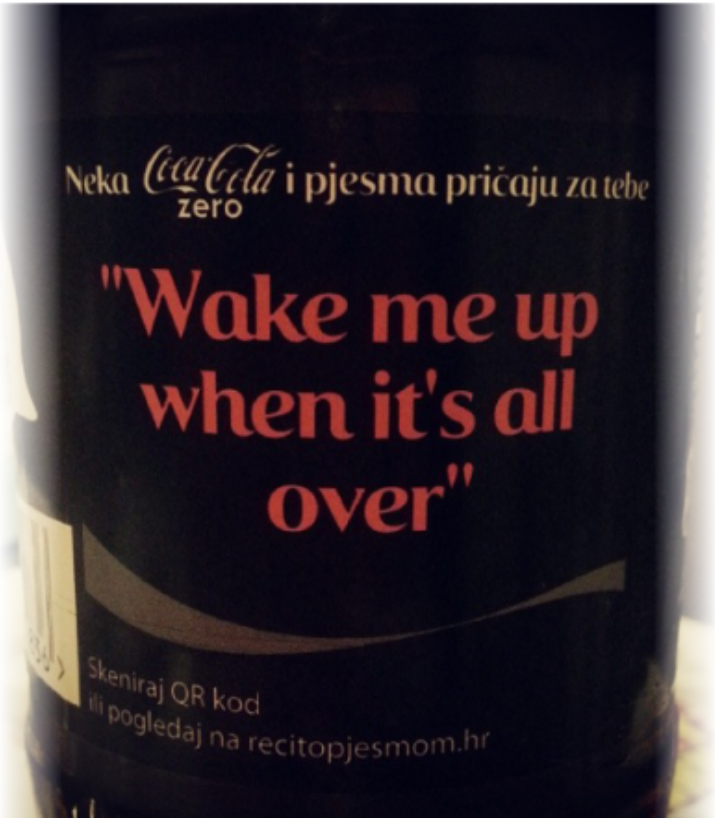So I, like so many 20-something millennials before me, have decided to quit my job and go find myself in South East Asia (and Oceania for good measure), and, of course, I wanted to document my journey into the unknown of Kho San Rd and alike in a blog. But, instead of launching into a set of ramblings about elephant trekking and bedbugs, I thought I would insert a common thread to my entries, something to centre my musings and genuinely write about. That thing, or I should say brand, is Coca-Cola.
So why Coca-Cola?
There a couple of reasons really. The first, Coca-Cola is recognised all over the world. One of the West’s most successful brands and most iconic symbols; from language to its logo, Coca-Cola is everywhere. In the Interbrand survey of the Best Global Brand 2013 Coke ranks 3rd behind Google and Apple. Having worked on 2 global brands previously, I appreciate that this is no mean feat, especially when Coca-Cola seem to achieve a “universally relevant theme that weaves throughout the brand’s communications: happiness”. They seem to have transcended cultural differences with the unifying theme of happiness. But is happiness, or Coke’s definition of happiness (Coca-Happiness), really universal? I am intrigued to see how Coca-Happiness translated to individual markets, and if the day-to-day appearance of Coca-Cola’s brand, actually lives up to the Coca-Happiness mantra.
The second reason is purely personal, I have always been obsessed with Coca-Cola. Throughout my teenage years I collected different Coke bottles from the countries I visited, reveling in the slight differences in size, shape and language; foreign but still recognisable. As I am away for 6 months I cannot collect my glass bottle coke memories, so this is another way of taking away a little bit of the Coca-Happiness which I get from those curvy glass bottles.
Defining Coca-Happiness
I realise that the definition of happiness has been pursued for centuries with limited success, so I do not expect to define happiness definitively but how Coke approach happiness, what I have coined Coca-Happiness, is another matter.
Coke have a section of their website devoted to happiness in which they define Coca-Happiness as the following: “Happiness to us is anything that can bring a smile to someone’s face.” A moment of joy, very much centred in the now, brought on by choosing a Coca-Cola.
In the UK, and 20 other markets, Coke have activated Coca-Happiness over the past 2 summers in their Share a Coke campaign, which plays on the novelty of finding a friend or the holy-grail of your own name on the side of a Coke bottle. The pleasure of finding that familiar name on the bottle then in turn helps seal the deal.
Testament to how successful this campaign is this image which appeared on my timeline last summer. One girl in an attempt to involve her friend in the campaign, used tipex to doctor the name on the Coke bottle, so that “Hidigo” could have her own coke bottle. Proof of what Saatchi’s might call loyalty beyond reason, as the consumer has overcome the barrier of not having their name chosen for the bottle labels, and purchased the Coke anyway, with the specific intent of adding their name to the list; epitomising Coca-Happiness association, by surprising her friend and posting it on Facebook (interestingly, in 2014 you can now get personalised named glass bottles from Coca-Cola – a nice evolution).
So, one would have thought this campaign, taking the 200-odd most popular name from each country, and printing them on the labels, would translate into any language? But has it? Another social media anecdote, but a friend who recently holidayed in Croatia posted a photo of this Coke Zero bottle with the quote “wake me up when it’s all over”, now forgive me, but I do not believe that is a traditional Croatian name? I struggle even to see how this is related to Coca-Happiness at face value, although I am sure there is some Croatian Coca-Happiness logic behind this if you dig deep enough.
How will I achieve this?
I am to look at 3 main questions:
- Where the Coca-Cola brand exists in different countries and what that means for Coca-Cola?
- Does Coca-Cola achieve Coca-Happiness everywhere and how does it achieve it?
- Are there clear cultural differences in the style of advertising in different countries which are reflected in Coca-Cola and other brands’ behaviour in that country?
To achieve this I will:
- Record every instance I see the Coca-Cola brand and what that means for the brand
- Ask locals and those travelling through these countries their understanding of Coca-Cola, Happiness and Coca-Happiness Take the survey now
- Give snapshots of brand behaviour in each country visited and how this is mirrored by Coca-Cola
I may not emerge with all the answers, but I will try bloody hard, and hopefully gain some pretty interesting insights on the way.


